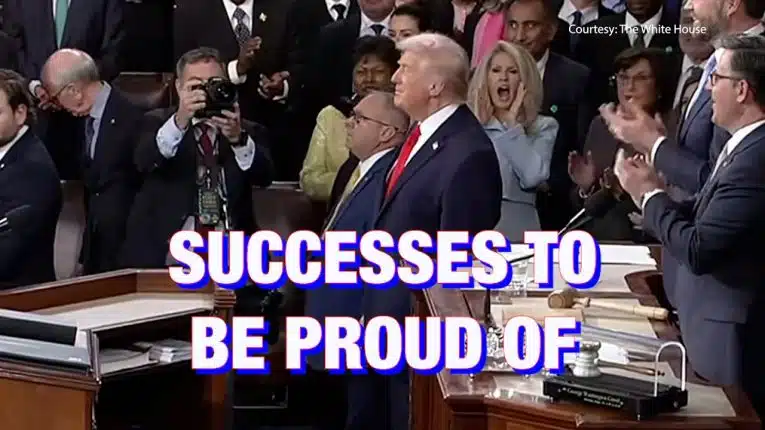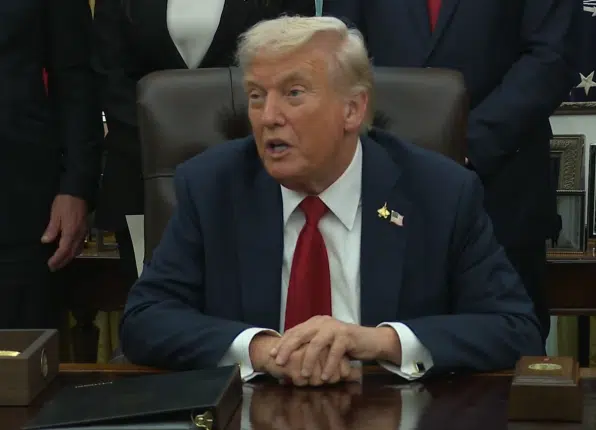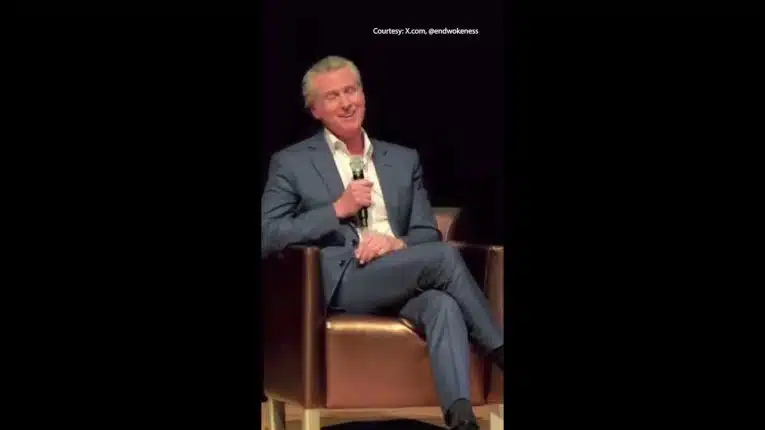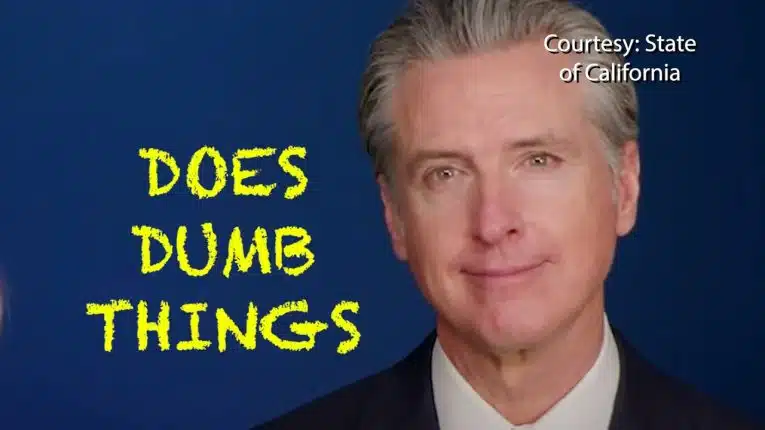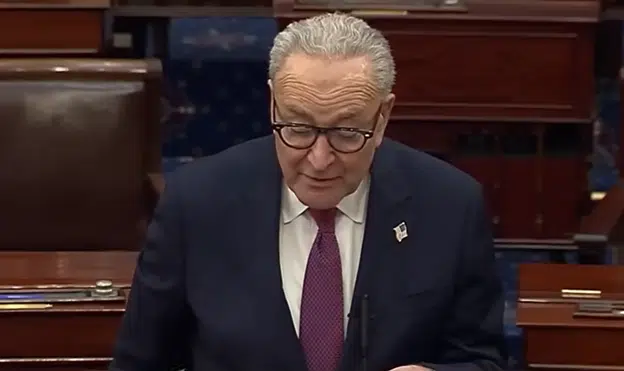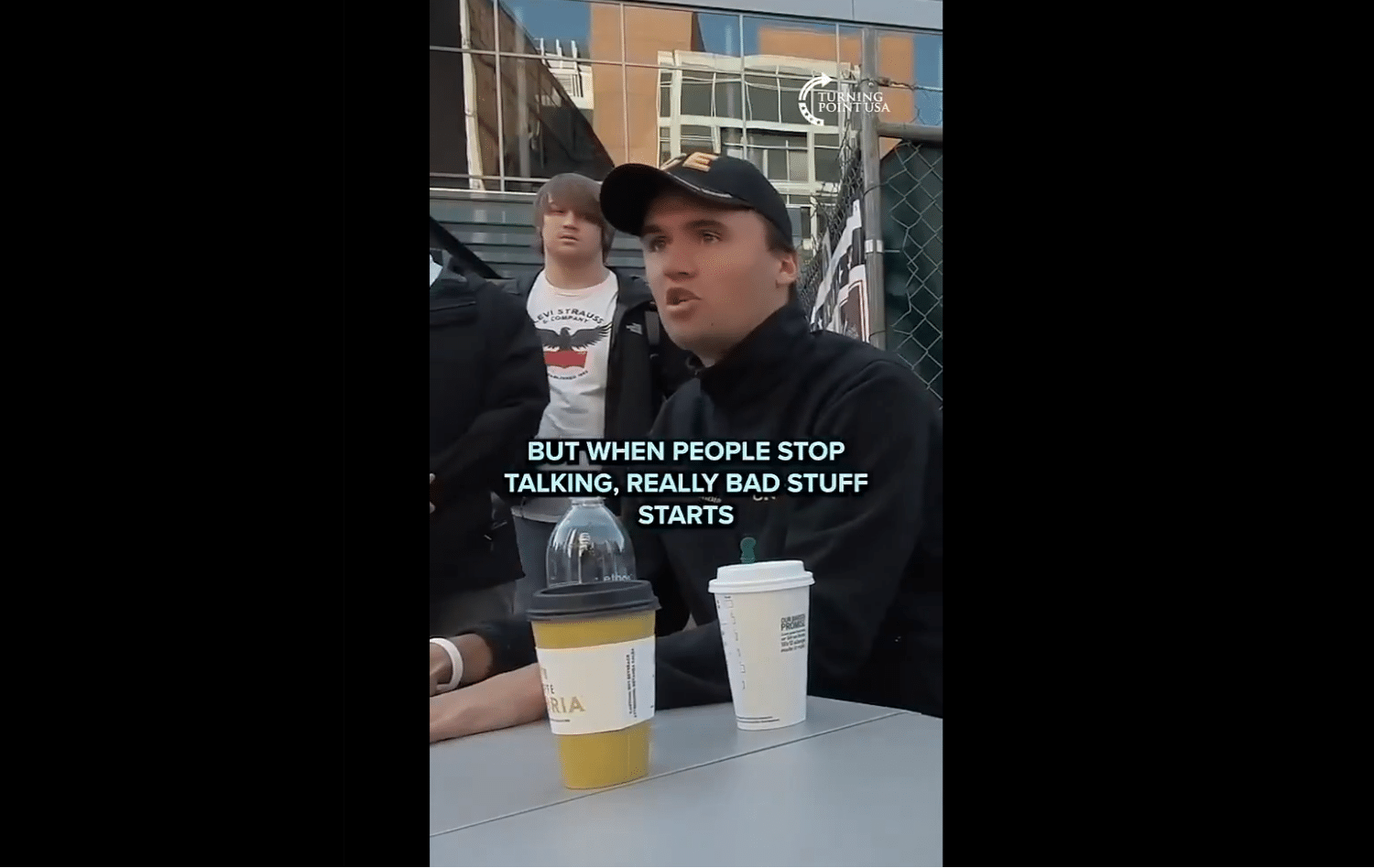
On Oct. 14, President Donald Trump posthumously awarded the Presidential Medal of Freedom to Charlie Kirk, a month after he assassinated by a radical extremist at Utah Valley University on Sept. 10, and which was graciously accepted by Erika Kirk on behalf of her husband.
It was the President’s way of thanking Mrs. Kirk for carrying on her husband’s legacy of free speech and open, civil discourse in our politics, particularly America’s young people. The nation continues to share her loss and prays for the return to the civil society that Charlie Kirk represented and the end of the scourge of political violence and extremism he warned against — and which is a growing threat to our liberty.
And we have been touched by Erika Kirk’s words that are helping America to heal.
Young people today are receiving lots of mixed messages about political violence and extremism in our country, with some celebrating violence, hate and extremism and others who refuse to address it. We saw it in the wake of Charlie Kirk’s assassination. We have seen it in Virginia Attorney General’s race. Awful, hateful messages by young people, to young people.
Today, I was saddened (but not surprised) to see some of it on display in the Young Republican group chat reported by Politico on Oct. 14 that contained hateful and pro-Nazi messages. Similar messages are unfortunately common on social media outlets like X, Facebook, Gab, YouTube and so forth that young people have been exposed to over the years.
Initial reactions have ranged from the organization itself denouncing the messages and demanding resignations, to others pointing out partisan hypocrisy about political violence and so forth. All of which are fairly standard for our current political culture.
What I haven’t seen yet but can still be addressed is that the young people sending these kinds of messages — whether advocating political violence or appearing to embrace extremism — need help. The young people receiving these messages need help. They need voices of moderation.
Voices like Charlie Kirk’s.
They need to see there are alternatives, that there is a way back from hate and extremism, and it is to learn the timeless principles of our Founding, the conditions of the civil society that Alexis de Tocqueville articulated in Democracy in America, the warning and prescription against the “violence of faction” James Madison proposed the Constitution could help resolve in The Federalist No. 10 and the defense of free speech and liberty John Stuart Mill offered in On Liberty.
And it is through forgiveness. Kindness. As Mrs. Kirk showed us at her husband’s funeral, when she forgave the assassin. Who among us could do the same? It was a true act of strength, compassion and love, from a grieving widow and mother — to all of us. To America, to the world. And it teaches us.
We mustn’t stop talking. That is what Charlie Kirk taught us: “[W]hen people stop talking, really bad stuff starts. When marriages stop talking, divorce happens. When civilizations stop talking, civil war ensues. When you stop having a human connection with someone you disagree with, it becomes a lot easier to want to commit violence against that group… What we as a culture have to get back to is being able to have a reasonable disagreement where violence is not an option.”
If there is no way back from hate, then there is no incentive for some to turn back from it. Right now, we don’t need cancel culture. Cancel culture creates subculture. Young people need to see the alternatives to mob rule, not be battered by it in response to immature thinking.
Instead, we need to show young people that America, the Constitution and our founding principles are the alternative to the extremism and violence that are claiming too many minds, and far too many lives. One is too many.
It is humanity’s oldest problem.
These young people, and particularly young men, who are embracing hate need help. And they need a voice. We need Charlie Kirk more than ever but now it is up to all of us to show that the answer to bad speech is not silence, it is more speech. Please help them, Mr. President.
Robert Romano is the Executive Director of Americans for Limited Government and Americans for Limited Government Foundation.


